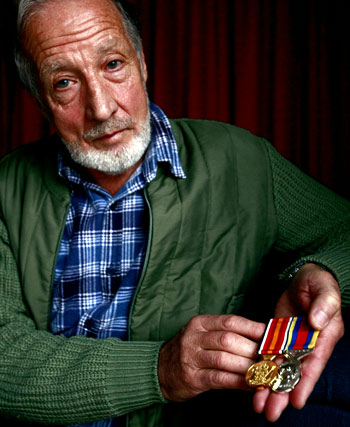Story summary
Medals are awarded to members of the armed forces to recognise service, participation in particular military campaigns, and acts of gallantry and bravery.
British and New Zealand awards
New Zealand military personnel could receive British medals from the 19th century until 1999, when the British gallantry and bravery awards were replaced by New Zealand awards.
Appearance and display
Medals are made of metal. They are usually round, or cross- or star-shaped, and are attached to a ribbon. Medals are worn next to the left lapel, and must be displayed in the correct order. Since the 1990s family members have been permitted to wear a deceased relative’s medals on Anzac Day or other suitable occasions, next to the right lapel.
Collecting medals
From 1918 to 1974 medals could not be traded without permission from the Department of Defence. Since 1974 they could be freely traded. Collections of medals are held in the navy, army and air force museums, and in some non-military museums.
Campaign and service medals
- The New Zealand Medal recognised British troops who fought in the New Zealand Wars.
- Five British medals were awarded for service in the First World War.
- Ten British medals were awarded for service in the Second World War.
- The New Zealand War Service Medal was the first medal issued by New Zealand for New Zealanders. Everyone who served in the armed forces, reserve or home guard in the Second World War was eligible.
- From the 1990s more New Zealand medals were instituted, for various types of service after the Second World War.
- Medals are also awarded for long service or good conduct.
Gallantry and bravery medals
In 1999 eight New Zealand awards replaced British awards for gallantry and bravery. Gallantry awards are for courageous actions by military personnel. Bravery awards are generally for civilians. Both types can be awarded posthumously (after death).
The Victoria Cross for New Zealand is the highest gallantry award for military personnel. The only recipient so far is Corporal Willie Apiata, who received a Victoria Cross for New Zealand in 2007 for actions in Afghanistan.
21 members of the New Zealand armed forces have been awarded the British Victoria Cross. The most famous was Second World War soldier Charles Upham. He is one of only three people worldwide to be awarded the Victoria Cross twice.
The New Zealand Cross was a colonial equivalent of the Victoria Cross.





